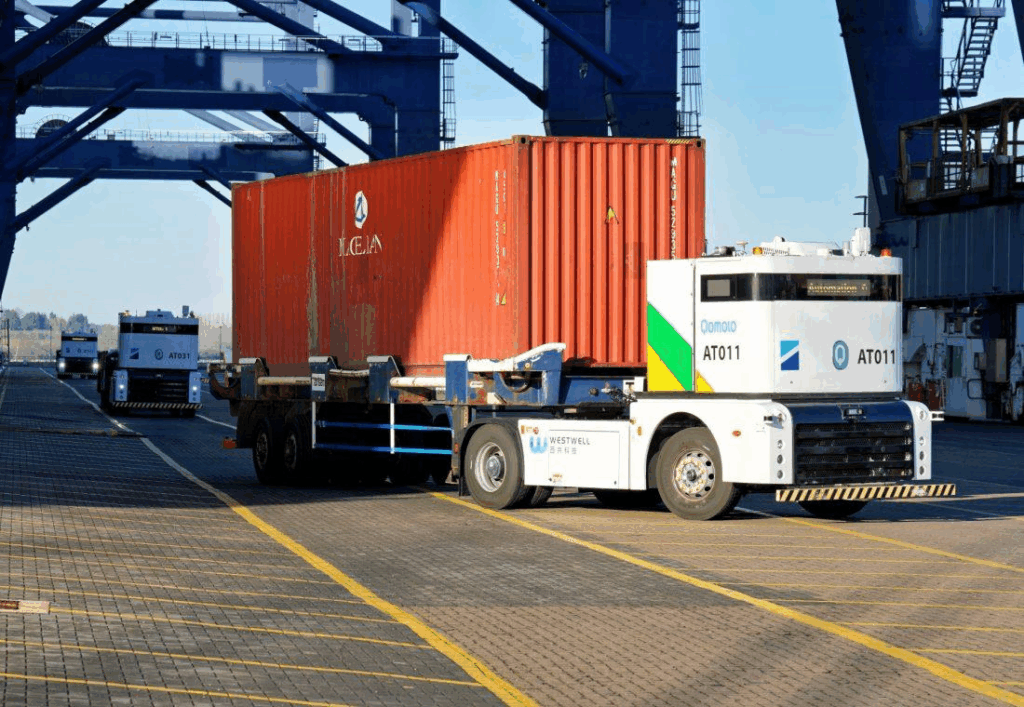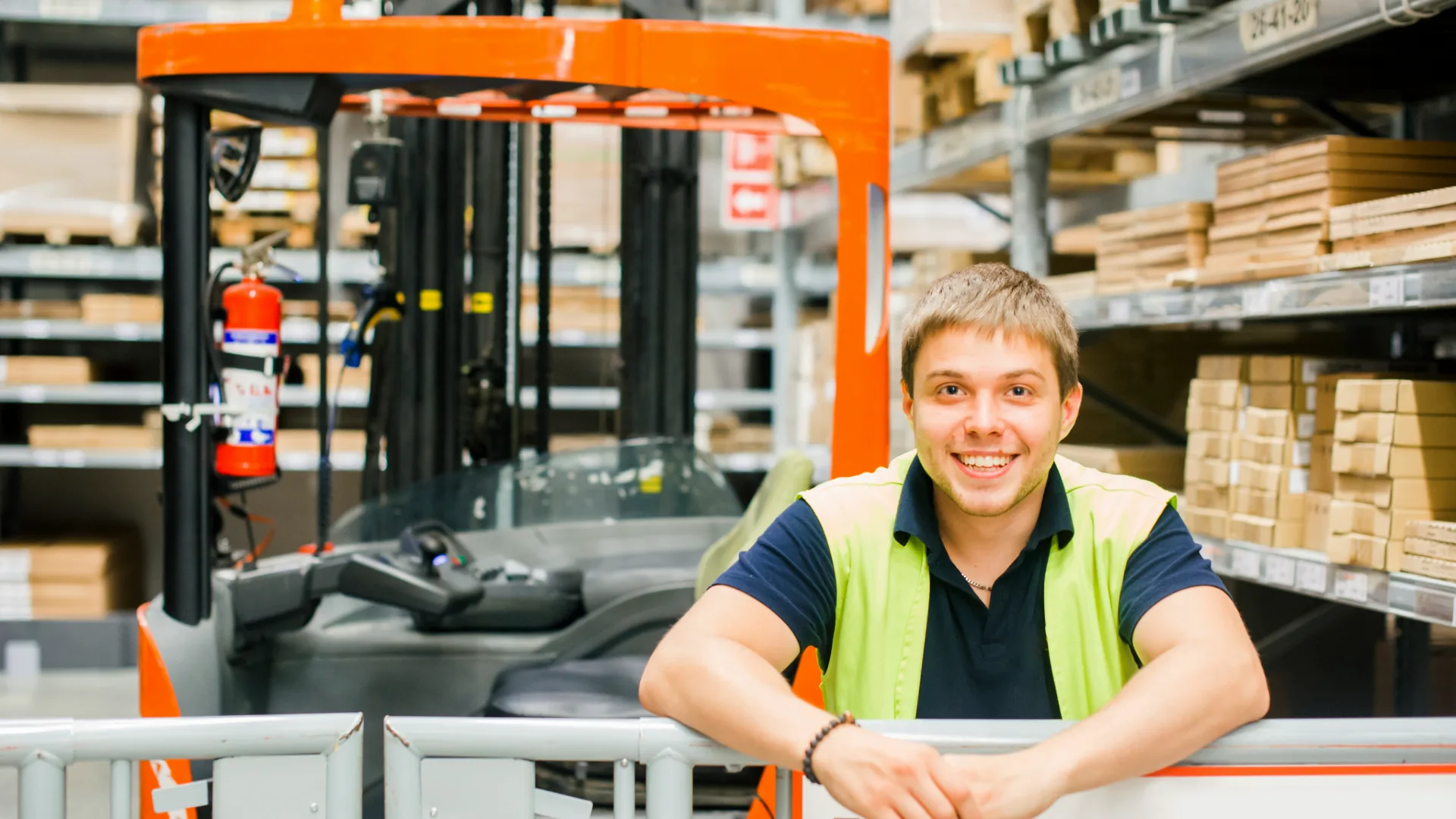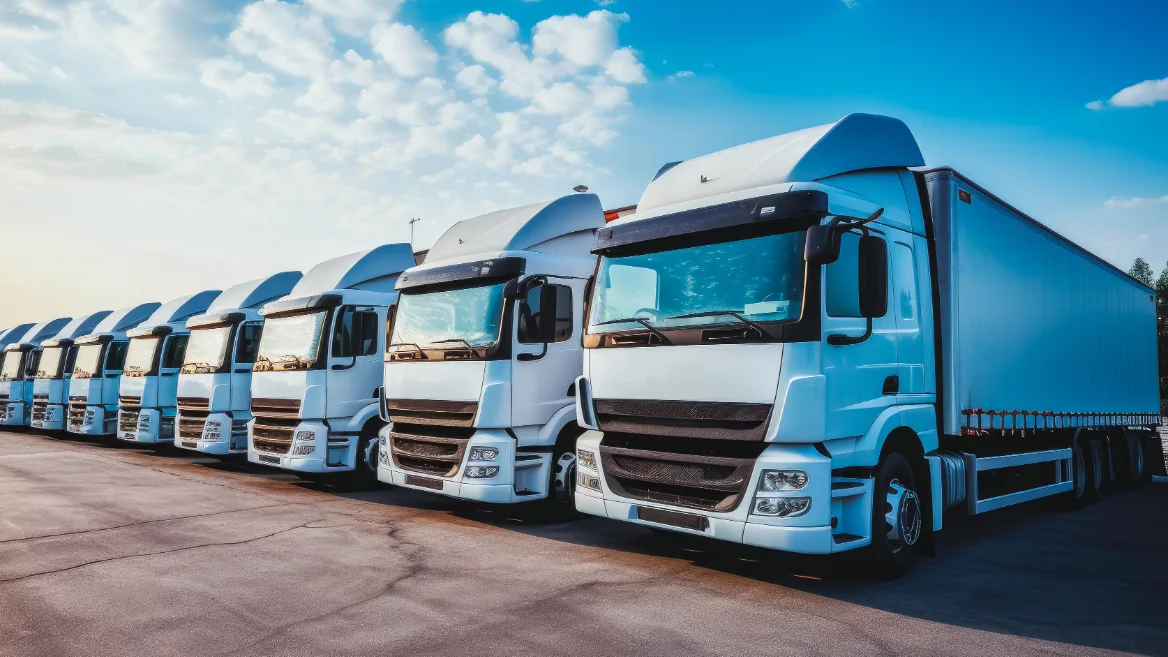Welcome to This Week in Freight, your go-to source for the latest haulage and road freight news and advice in the UK.
In this week’s edition, the spotlight is very much on innovation and training.
- Bedford College has launched the National College of Logistics, an industry-first move to tackle the sector’s skills gap in the UK.
- AI-powered drive-thru inspections are now available for UK fleets, ports in Antwerp and Felixstowe are pushing ahead with autonomous trucks.
- Plus, we explain why European and American trucks look worlds apart.
That’s not all. From Italian investigators seizing €26.5m in logistics fraud cases to Volvo’s new off-road FL 4×4 and BIFA’s contract overhaul, we’ve rounded up the stories that matter most.
Dive into this week’s edition for the headlines shaping the future of road freight.
🎓 Logistics gets its own national college

It’s an industry first: the UK now has a dedicated National College of Logistics, launched by Bedford College Group.
In the latest HGV1 podcast, host Mikey Faulkner speaks with David Coombes, head of logistics at the college, about how immersive tech, bootcamps and apprenticeships will attract the next generation and support career-changers.
Backed by major employers like DHL and GXO, it’s a bold step towards solving logistics’ talent gap.
→ Listen to the full HGV1 podcast on Spotify.
⚓ Antwerp & Felixstowe test driverless fleets

Two of Europe’s busiest ports are putting autonomous trucking to the test.
In Belgium, Einride unveiled the nation’s first level 4 driverless truck at Antwerp-Bruges — a cabless vehicle steered by AI, remote sensors and a digital control tower.
Meanwhile, Felixstowe has doubled its order to 68 autonomous trucks after successful trials, supported by a huge private 5G network and automated battery swapping.
Both projects promise safer, faster, low-carbon operations, but unions remain cautious on jobs and safety.
🇪🇺 Cabover vs 🇺🇸 long nose: the great divide

Ever wondered why a Scania looks so different from a Peterbilt? The answer lies in decades of diverging rules, roads and culture.
Europe’s strict length laws and tight city streets cemented the cabover as king — compact, agile, efficient.
In the US, wide highways and long hauls birthed the long-nose conventional, with sprawling sleeper cabs that double as homes on wheels.
From engines and gearboxes to safety features and driver lifestyles, the contrasts run deep.
→ Explore the full story of design and culture.
Also worth a read
- 📑 BIFA has overhauled its Standard Trading Conditions for the first time since 2021, reflecting new risks and trade rules.
- 🤖 AI-powered drive-thru inspections have launched in the UK, promising faster compliance checks and less downtime for heavy-duty fleets.
- 💶 Italian investigators recently seized €26.5m in logistics assets as fraud, fake invoices and illegal employment rocked the sector.
- 📷 A new AI dashcam pilot has cut risky behaviours by up to 95%, with in-cab coaching slashing tailgating and phone use.
- 🏛️ Industry leaders have united to tackle UK freight challenges, from skills shortages and border delays to net zero roadmaps.
Movers & shakers
Here are this week’s new transport deals, partnerships and developments:
- ✈️ FedEx has opened a new 19,000 sq ft freight facility at East Midlands Airport to boost capacity and streamline cargo handling. Useful if you have a Cargo Operative certification.
- ❄️ FridgeXpress has expanded to five new UK locations and added HGV fridge vehicle hire through its partnership with Blakedale.
- ⚡ HIVED has launched all-electric haulage operations with a fleet of 44t eHGVs, connecting cities and hubs across the UK.
- 🛍️ Cotswold Outdoor Group has awarded DHL Supply Chain a multi-year contract for warehousing, e-commerce fulfilment and nationwide distribution.
- 🚛 Volvo has toughened up its range with a new FL 4×4 model built for off-road work in construction, rescue and defence sectors.




